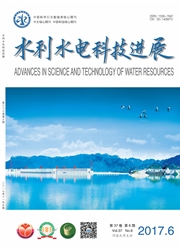

 中文摘要:
中文摘要:
为了完善初始水权分配理论,提高对政府预留水量的认识和理解,在回顾相关文献的基础上,对政府预留水量的概念、分类、作用及分配动因进行了深入的分析。提出政府预留水量是初始水权体系的主要组成部分,具有应急性、预期性、公共性等属性,在应对供水危机和规避经济发展风险方面具有重要作用,相关水利法规政策、已有实践以及水权市场的特点揭示政府预留水量不仅是可行的,而且也是有效的。总结试点流域实践经验对其他流域或地区分配政府预留水量具有重要的借鉴意义。
 英文摘要:
英文摘要:
In order to perfect the "allocation theories of initial water rights and deepen the understanding of governmental reserved water, the concepts, classifications, effects, and allocating reasons were analyzed based on the existing literature. The authors believe that governmental reserved water is an important part of initial water rights and has the attributes of being able to offset emergency conditions, to be anticipated, to be publicized, and so on. Governmental reserved water can be used to cope with the water supply crisis and economic development risks. It has been proven to be feasible and effective by the existing water policies, practices, and characteristics of the water rights market. This stanmary of practical experiences provides a reference for reserved water in other regions.
 同期刊论文项目
同期刊论文项目
 同项目期刊论文
同项目期刊论文
 期刊信息
期刊信息
